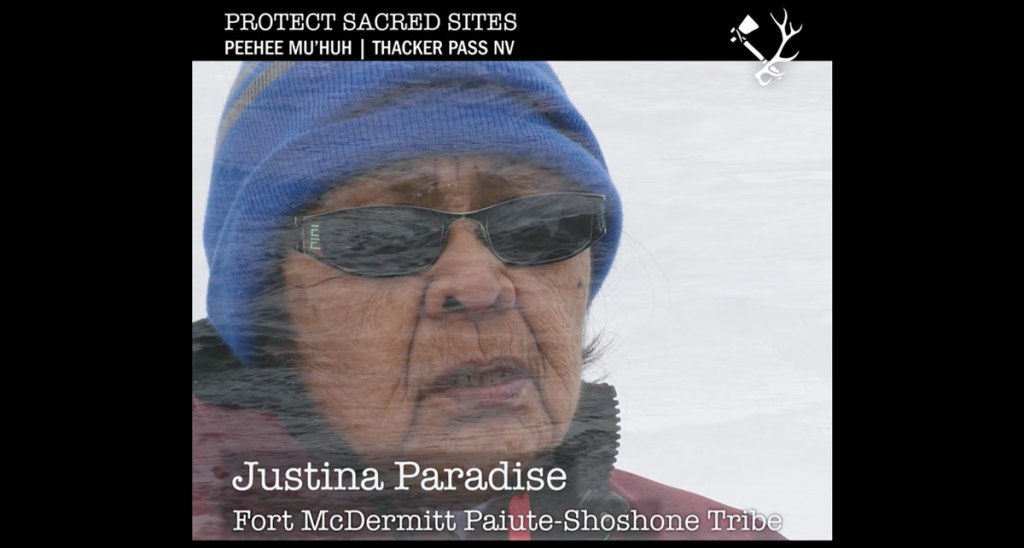
Over the past year and a half, Lakota Law has worked in support of the Paiute and Shoshone peoples near Peehee Mu’huh (Thacker Pass) in so-called Nevada. In those sacred homelands of our relatives, a lithium mine planned to become Turtle Island’s largest poses a grave threat to Unci Maka (Grandmother Earth) and the Indigenous communities who need clean water, air, and soils to live safely in balance with their natural surroundings.
I hope you agree that our society must transition to clean energy, and quickly. Our future generations depend on it. I hope you also agree that, as we make that transition, we must always center environmental justice. As with oil pipelines, lithium mines shouldn’t endanger frontline Black and Brown communities — or their land and water sources. As Thacker Pass water protector and Ox Sam Camp grandmother Justina Paradise shares in our latest short video, the relationship between Mother Earth and the water that flows through her rivers is akin to the blood in our veins.

Watch: Grandmother Justina Paradise discusses the importance of water to our Mother Earth in our new short video.
When the mine is built — and a hasty approval process that failed to seek permission from all the affected Native frontline communities means that, sadly, that will likely soon come to pass — it will destroy local ecosystems. Lithium Americas plans to extract more than 1.7 billion gallons of water annually from an aquifer in the Quinn River Valley. Uranium, antimony, sulfuric acid, and other dangerous substances will likely contaminate the groundwater. The cumulative effects of that would be disastrous for not just the nearby human beings, but for rare and protected species like the critically endangered spring snail (which only lives in the Thacker Pass area), the greater sage-grouse, and the Lahontan cutthroat trout.
The rush to build this mine is yet another indication that the federal government’s stated commitment to tribal consultation (a problematic term) is hollow, at best. It also means that dangerous man camps, temporary housing for extraction workers which often lead to an uptick in the epidemic of Missing and Murdered Indigenous Relatives, are on the horizon.
During his visit last week to Peehee Mu’huh, the Fort McDermitt Reservation, and Reno-Sparks Indian Colony, my colleague, Lakota Law attorney Dov Korff-Korn, heard loud and clear that local Native communities consider the project to be a dishonest slap in the face carried out by an alliance of government and extractive industry. No matter how uphill the battle, we must ensure that Indigenous peoples’ safety and wellbeing are prioritized and that Native communities retain access to the sacred places their families have visited since time immemorial.
There’s much more we plan to do and say about that — and what it all means for tribal health and safety and the ongoing relationship between the federal government and tribal nations. Please stay tuned.
Wopila tanka — thank you for standing for environmental justice!
Chase Iron Eyes
Co-Director and Lead Counsel
The Lakota People’s Law Project